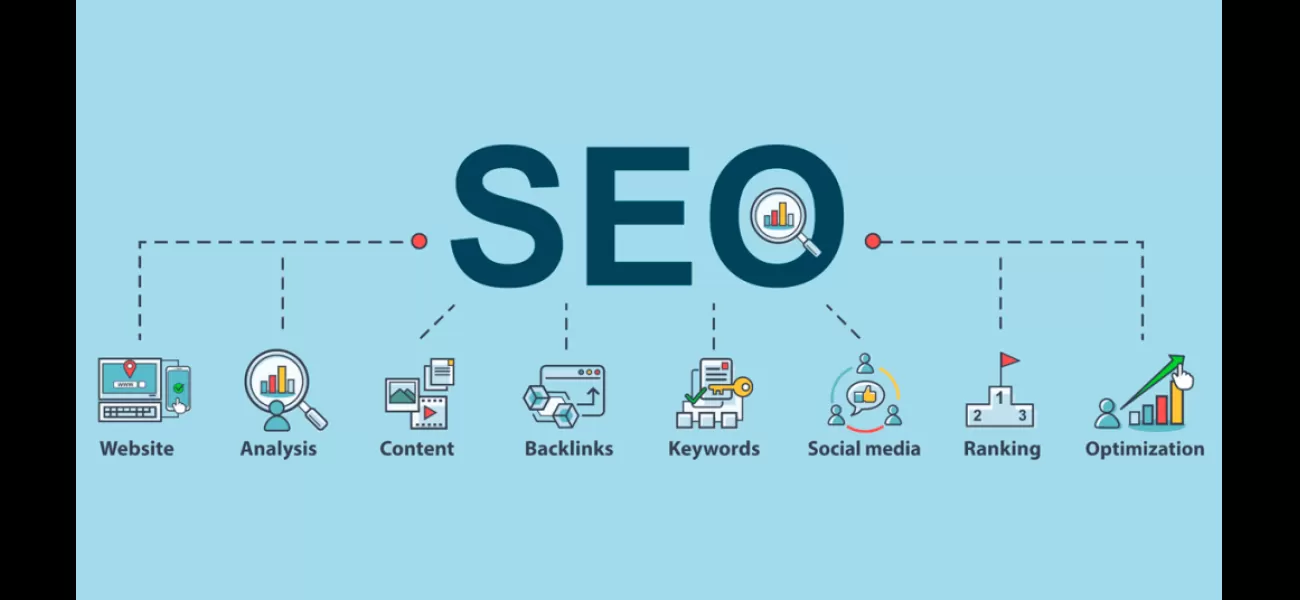Learn all you need to know to become a digital marketing expert with this comprehensive guide.
Learn the basics of digital marketing and get the skills you need to become an expert with this comprehensive guide.
April 21st 2023.

2. Create compelling content
Content is key when it comes to social media marketing. You’ll want to create content that’s relevant to your target audience and provides value. This could be in the form of blog posts, videos, images, and more.
3. Leverage influencers
Influencers are popular on social media and can be an effective way to reach your target audience. You can work with influencers to promote your products or services to their followers.
4. Engage with your followers
Engagement is a key factor when it comes to social media marketing. You’ll want to respond to comments, answer questions, and interact with followers to establish relationships and build trust.

(Image Source: https://www.jeffbullas.com)
With the majority of consumers now relying on the internet to research and purchase products, businesses must focus on digital marketing to reach their target audience and drive sales. Digital marketing channels such as search engines, social media, email, and websites provide a great opportunity to reach and engage with your target audience.
Developing a digital marketing strategy is essential to any business that wants to succeed. This involves identifying your target audience, setting marketing objectives and goals, conducting a SWOT analysis, and creating a digital marketing plan and budget. Search Engine Optimization (SEO), Pay-Per-Click Advertising (PPC), and Social Media Marketing are all important components of a successful digital marketing strategy.
By understanding how search engines work, conducting keyword research and analysis, optimizing on- and off-page content, and leveraging local and mobile SEO, businesses can improve their visibility in search engine results pages.PPC campaigns involve bidding on specific keywords and targeting specific audiences, while social media marketing involves creating compelling content and engaging with followers.
By following these steps, businesses can create an effective digital marketing strategy that will help them reach and engage with their target audience, generate leads, and ultimately drive sales and revenue.

(Image Source: https://www.jeffbullas.com)
2. Create engaging content
Once you know which platforms your audience is using, you can create content tailored to them. This could include videos, images, text posts, polls, or even live streams. It’s important to create content that is engaging and resonates with your target audience. You can also use influencers to promote your content and reach a larger audience.
3. Track performance
Social media platforms offer useful analytics and insights to track the performance of your campaigns. This includes metrics such as reach, impressions, and engagement. Tracking these metrics will help you identify which content and campaigns are most successful, and which ones may need to be adjusted.
Digital marketing is a powerful tool that can help businesses reach and engage with their target audience, generate leads, and drive sales and revenue. With the right strategies, tools, and techniques, businesses can create effective digital marketing campaigns that reach their desired results.

(Image Source: https://www.jeffbullas.com)
Image Source
Digital marketing is an invaluable tool for businesses to reach and engage their target audience, generate leads, and drive sales and revenue. Today, digital marketing has become an essential part of any successful business strategy, with consumers increasingly using the internet to research and purchase products.
By utilizing various digital marketing channels such as search engine optimization, pay-per-click advertising, and social media marketing, businesses can create effective campaigns tailored to their target audience. This guide provides a comprehensive overview of digital marketing, including strategies, tools, and techniques.
Developing a digital marketing strategy is key to success. This includes identifying your target audience and personas, setting marketing objectives and goals, conducting a SWOT analysis, and creating a digital marketing plan and budget. Search engine optimization is a critical component of any digital marketing strategy, and involves understanding how search engines work, conducting keyword research, and optimizing web pages and content.
For PPC campaigns, it is important to create effective ad copy to entice users to click on your ad, as well as relevant landing pages and calls to action. Tracking metrics such as click-through rate, cost per click, and conversion rate can help you identify which campaigns are most successful and optimize campaigns accordingly.
For social media marketing, it is essential to understand which platforms your target audience is using, create engaging content, and track performance using analytics and insights.
By utilizing digital marketing channels, businesses can create effective campaigns that reach their desired results.
Content is key when it comes to social media marketing. You’ll want to create content that’s relevant to your target audience and provides value. This could be in the form of blog posts, videos, images, and more.
3. Leverage influencers
Influencers are popular on social media and can be an effective way to reach your target audience. You can work with influencers to promote your products or services to their followers.
4. Engage with your followers
Engagement is a key factor when it comes to social media marketing. You’ll want to respond to comments, answer questions, and interact with followers to establish relationships and build trust.

(Image Source: https://www.jeffbullas.com)
With the majority of consumers now relying on the internet to research and purchase products, businesses must focus on digital marketing to reach their target audience and drive sales. Digital marketing channels such as search engines, social media, email, and websites provide a great opportunity to reach and engage with your target audience.
Developing a digital marketing strategy is essential to any business that wants to succeed. This involves identifying your target audience, setting marketing objectives and goals, conducting a SWOT analysis, and creating a digital marketing plan and budget. Search Engine Optimization (SEO), Pay-Per-Click Advertising (PPC), and Social Media Marketing are all important components of a successful digital marketing strategy.
By understanding how search engines work, conducting keyword research and analysis, optimizing on- and off-page content, and leveraging local and mobile SEO, businesses can improve their visibility in search engine results pages.PPC campaigns involve bidding on specific keywords and targeting specific audiences, while social media marketing involves creating compelling content and engaging with followers.
By following these steps, businesses can create an effective digital marketing strategy that will help them reach and engage with their target audience, generate leads, and ultimately drive sales and revenue.

(Image Source: https://www.jeffbullas.com)
2. Create engaging content
Once you know which platforms your audience is using, you can create content tailored to them. This could include videos, images, text posts, polls, or even live streams. It’s important to create content that is engaging and resonates with your target audience. You can also use influencers to promote your content and reach a larger audience.
3. Track performance
Social media platforms offer useful analytics and insights to track the performance of your campaigns. This includes metrics such as reach, impressions, and engagement. Tracking these metrics will help you identify which content and campaigns are most successful, and which ones may need to be adjusted.
Digital marketing is a powerful tool that can help businesses reach and engage with their target audience, generate leads, and drive sales and revenue. With the right strategies, tools, and techniques, businesses can create effective digital marketing campaigns that reach their desired results.

(Image Source: https://www.jeffbullas.com)
Image Source
Digital marketing is an invaluable tool for businesses to reach and engage their target audience, generate leads, and drive sales and revenue. Today, digital marketing has become an essential part of any successful business strategy, with consumers increasingly using the internet to research and purchase products.
By utilizing various digital marketing channels such as search engine optimization, pay-per-click advertising, and social media marketing, businesses can create effective campaigns tailored to their target audience. This guide provides a comprehensive overview of digital marketing, including strategies, tools, and techniques.
Developing a digital marketing strategy is key to success. This includes identifying your target audience and personas, setting marketing objectives and goals, conducting a SWOT analysis, and creating a digital marketing plan and budget. Search engine optimization is a critical component of any digital marketing strategy, and involves understanding how search engines work, conducting keyword research, and optimizing web pages and content.
For PPC campaigns, it is important to create effective ad copy to entice users to click on your ad, as well as relevant landing pages and calls to action. Tracking metrics such as click-through rate, cost per click, and conversion rate can help you identify which campaigns are most successful and optimize campaigns accordingly.
For social media marketing, it is essential to understand which platforms your target audience is using, create engaging content, and track performance using analytics and insights.
By utilizing digital marketing channels, businesses can create effective campaigns that reach their desired results.
[This article has been trending online recently and has been generated with AI. Your feed is customized.]
[Generative AI is experimental.]
0
0
Submit Comment





